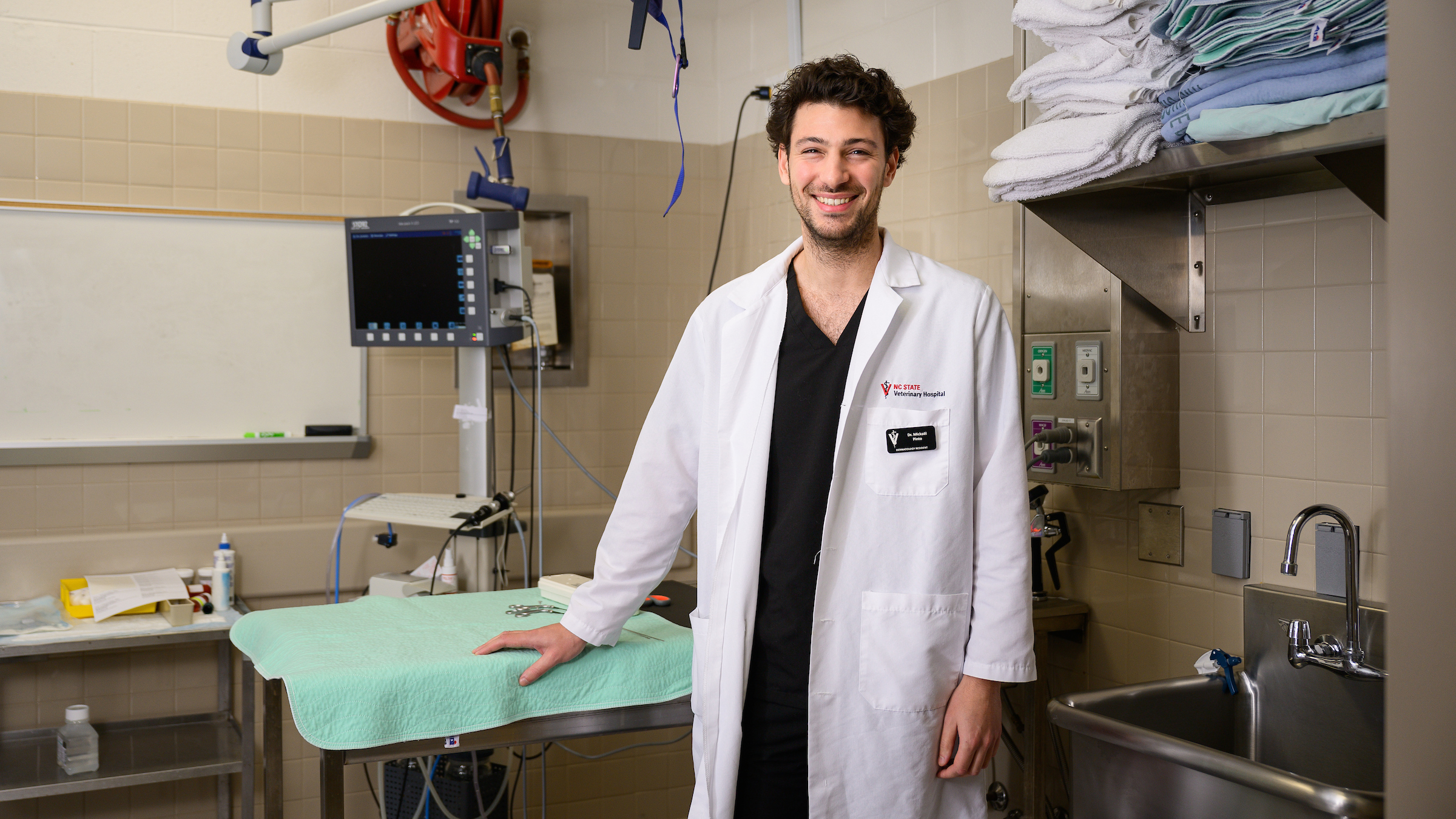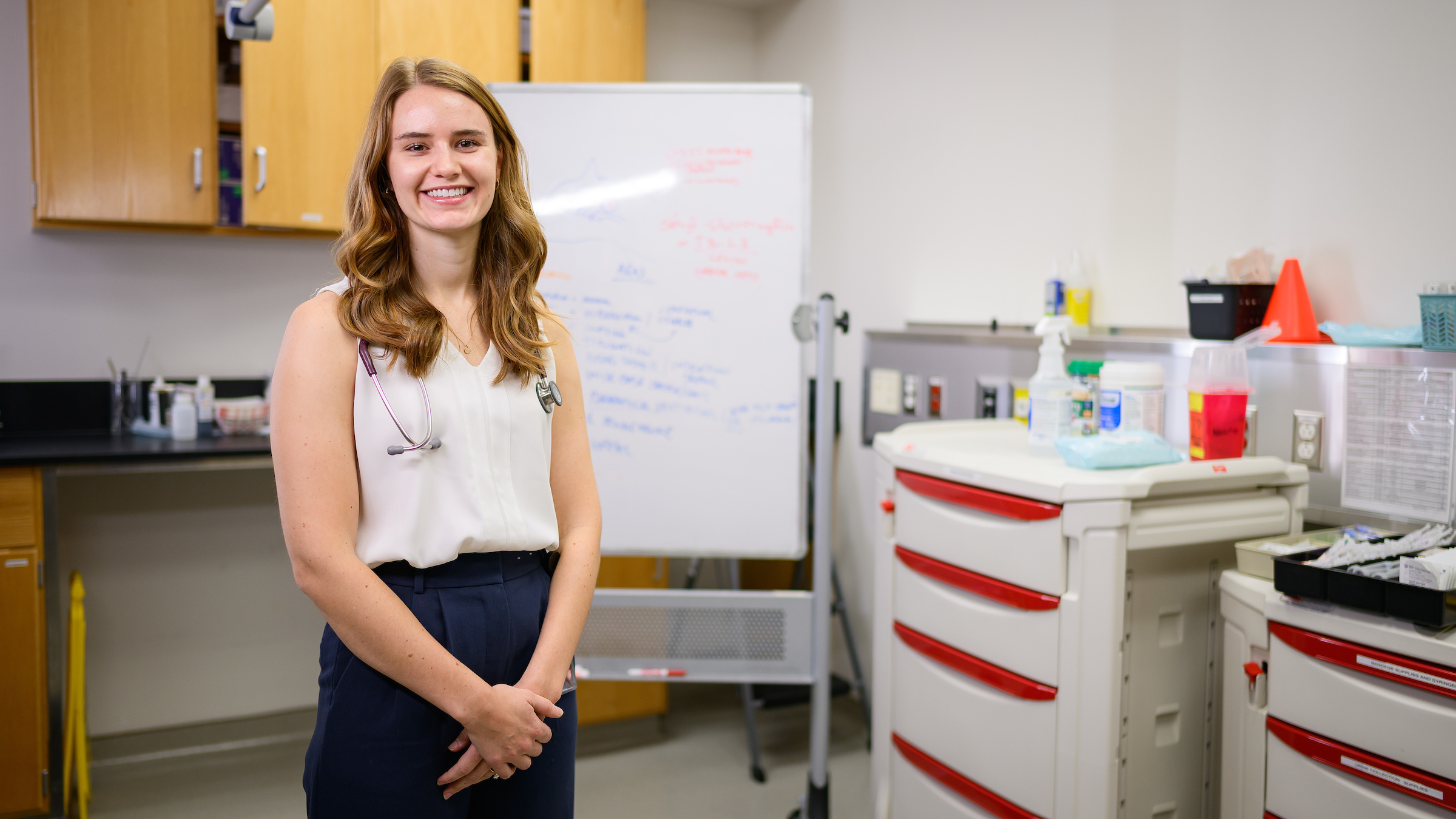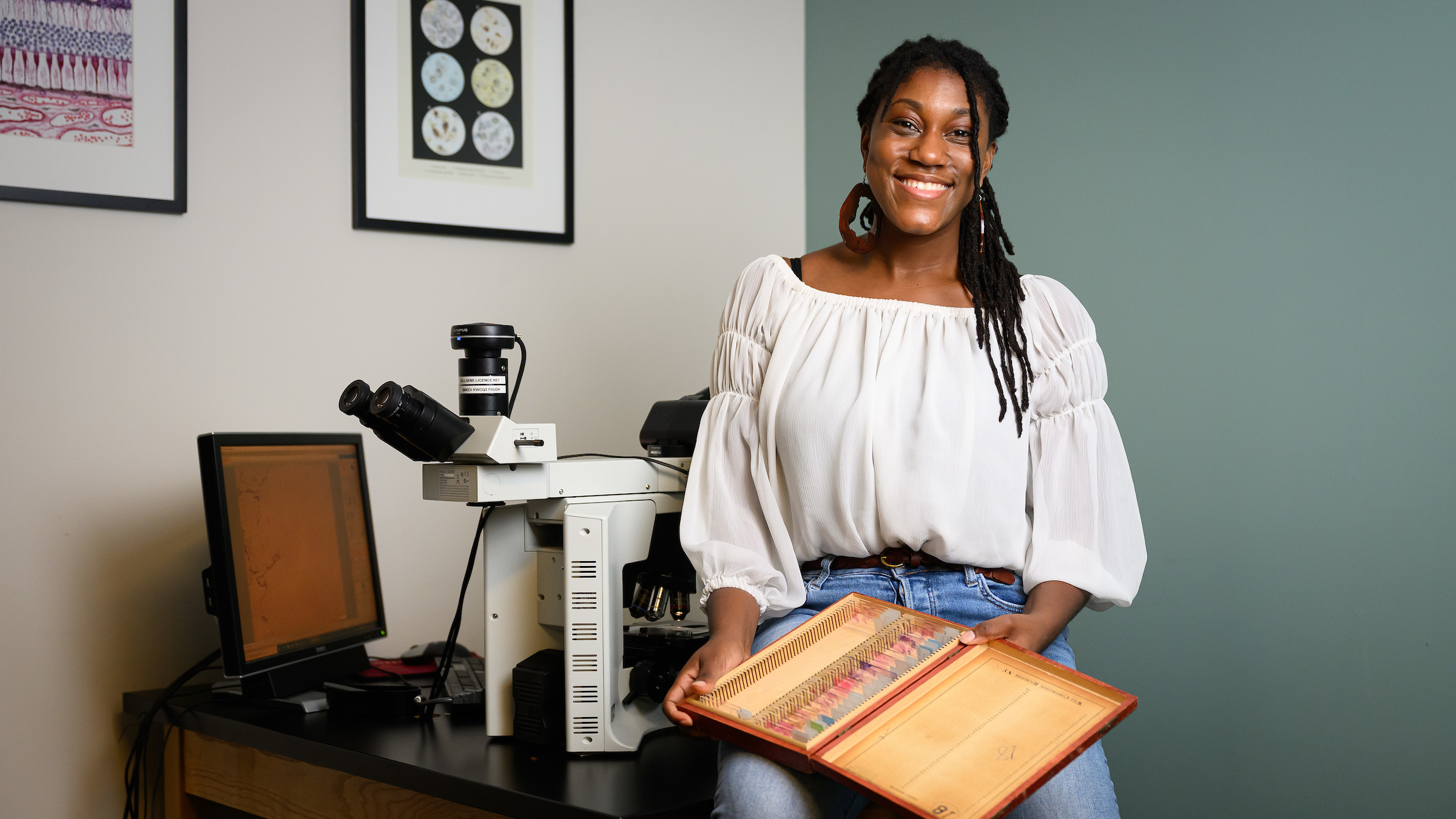House Officer Highlight: Outstanding in Her Field, Ruminant Resident Proves Herd Health is Public Health
Second-year ruminant health management resident Dr. Siena Mitman approaches her clinical work and research in goats, cows and even primates from a global One Health perspective.
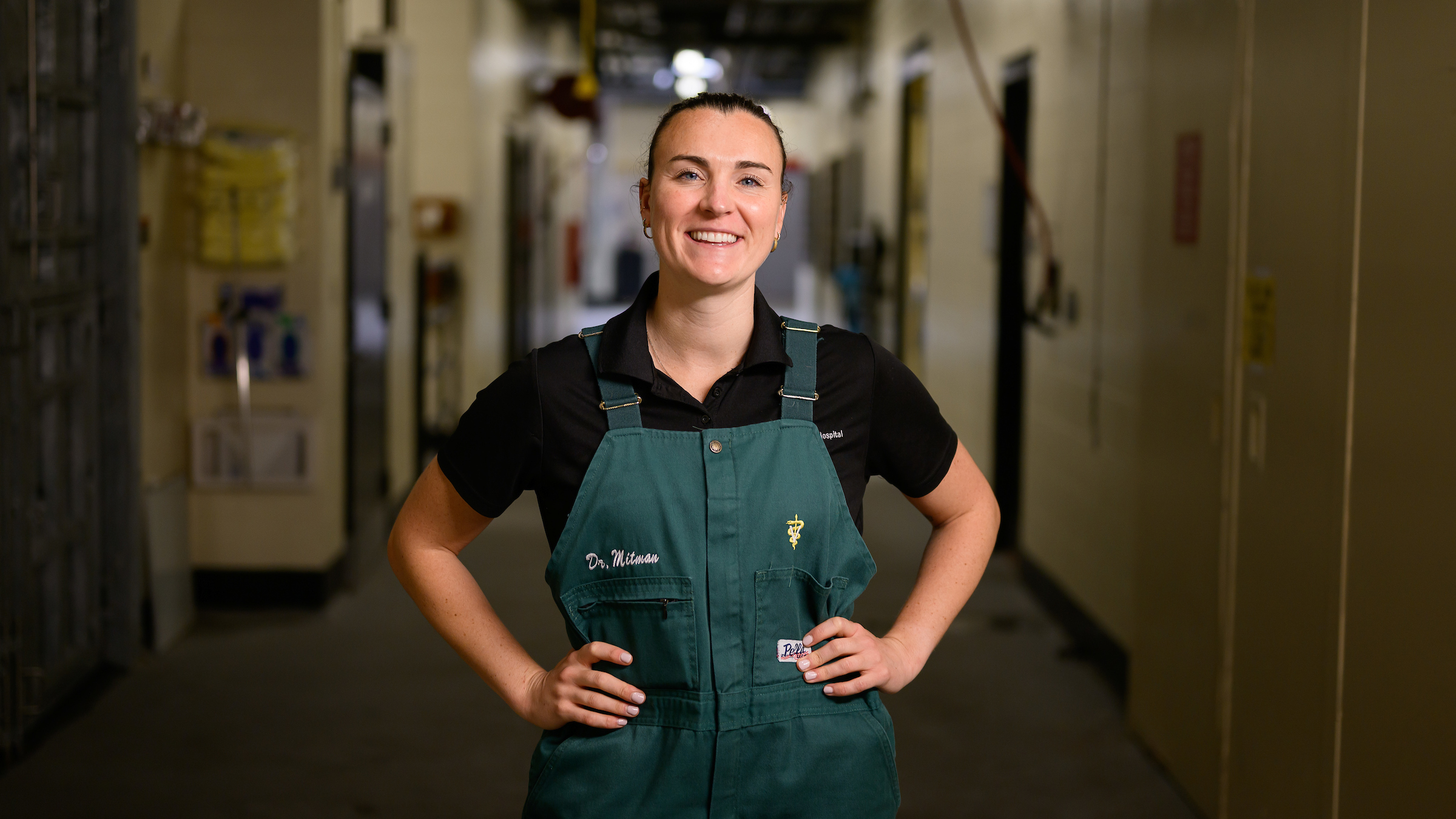
Dr. Siena Mitman landed in Raleigh by way of Malawi, Peru and Ecuador.
The second-year NC State resident’s route toward large animal and ruminant medicine was similarly circuitous. Mitman started with an interest in public health, specifically within animal care and advocacy, and realized she could make the most difference in that realm by working with livestock.
“There’s so much balance between individual and population medicine in livestock health,” Mitman says. “You’re thinking about the humans involved in their care all the time, too, and the people who are impacted by what you do to try to improve these animals’ health.”
Her international clinical care and research experiences involving various species have given her a global perspective in all senses of the phrase as she pursues a career at the intersection of livestock, wildlife and human health.
That work often means treating one sheep — or goat, cow, alpaca, or another member of the ruminant family — at a time, or sometimes entire herds, as part of the NC State Large Animal Hospital’s clinical team. Inside and outside the clinic, Mitman also researches key issues in livestock health, including evaluating colostrum feeding regimens for newborn calves and studying bladder-stone treatment methods for blocked goats.
“My time at NC State has been hugely impactful,” says Mitman, who also completed her ruminant medicine and surgery internship at the college. “Working with people who, in their own careers, have navigated balancing clinical work with research while doing multiple things that they really love has inspired me toward my goals.”
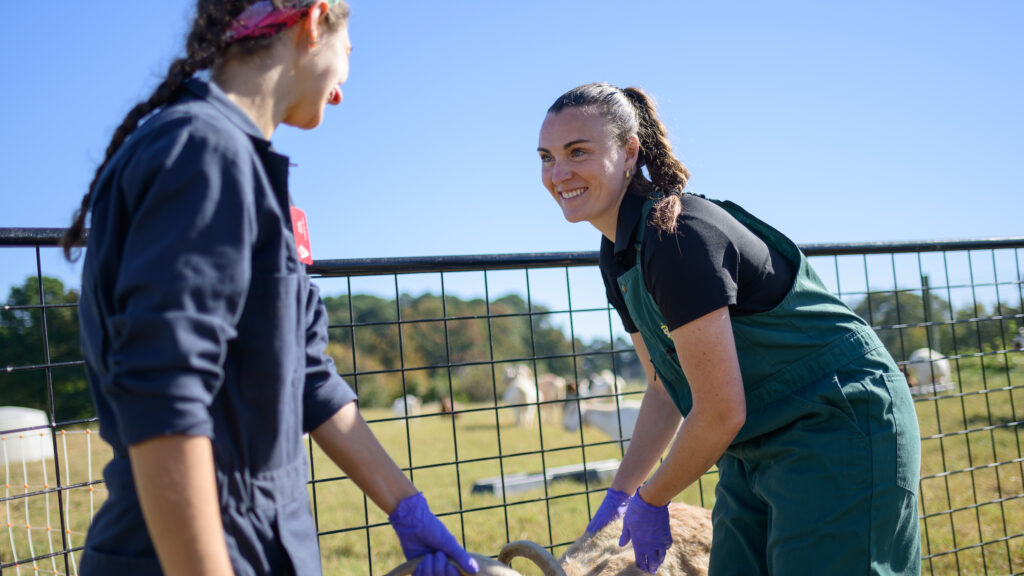
Public Health, Primates and Alpacas
Mitman’s veterinary aspirations started early. She grew up in Mequon, Wisconsin, with a hodgepodge of animals, including dogs, cats, hamsters and rabbits, and recalls catching frogs and turtles in her backyard.
She attended Bowdoin College, a liberal arts institution in Brunswick, Maine, near extended family. Mitman majored in biology and minored in Spanish while following a pre-veterinary track, spending her free time shadowing at veterinary clinics and volunteering at local humane societies.
She also found time to play on, and later captain, Bowdoin’s softball and women’s basketball teams. Those experiences refined the leadership and people skills that would come to benefit her in clinical settings.
“In any team, if you’re ultimately going to be successful, you really have to trust each other, build each other up and lean into the strengths that each person brings,” Mitman says. “You’re never going to accomplish big, challenging things independently, so I think it’s important to recognize that and be thankful for the people who help you do the things you do daily.”
After graduating with her bachelor’s in 2015, she delayed applying to veterinary school to explore animal advocacy opportunities and confirm that veterinary medicine was right for her. Mitman spent a couple months volunteering at the Lilongwe Wildlife Centre in Malawi working in wildlife conservation and rehabilitation.
That fall, she began working at the Wisconsin Humane Society as an animal care technician and adoption counselor. Her counseling role involved connecting people to pet care in under-resourced veterinary deserts, which drove home for her veterinary medicine’s human component.
“I just loved working with people, learning about their stories and finding ways to help connect them to resources that maybe they didn’t know existed,” Mitman says. “It gave me a touchstone throughout veterinary school about why I do what I do.”
She enrolled at Tufts University’s Cummings School of Veterinary Medicine in 2017, joining the International Veterinary Medicine certificate program to follow her interest in researching the relationships between wildlife rehabilitation and infectious disease.
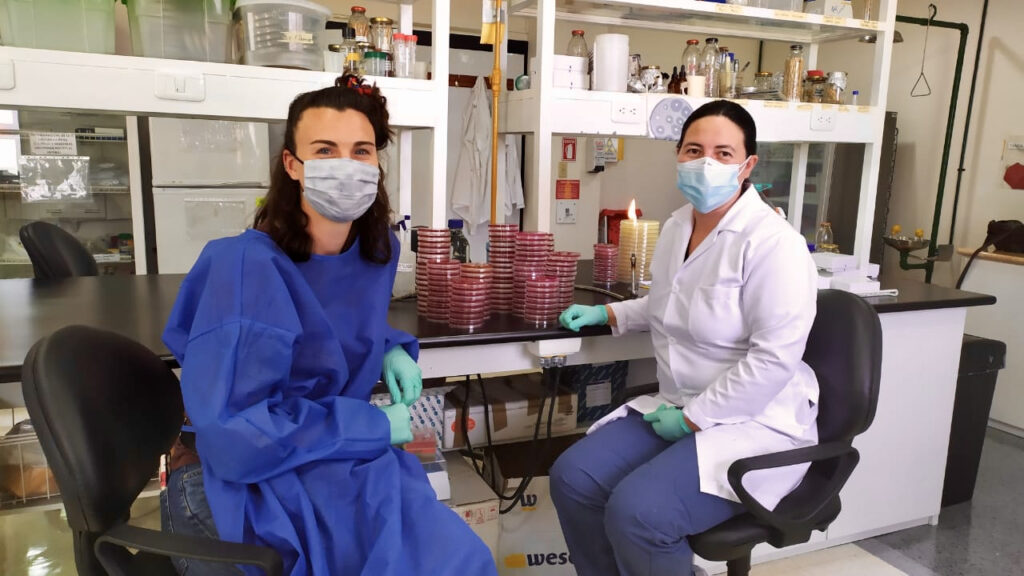
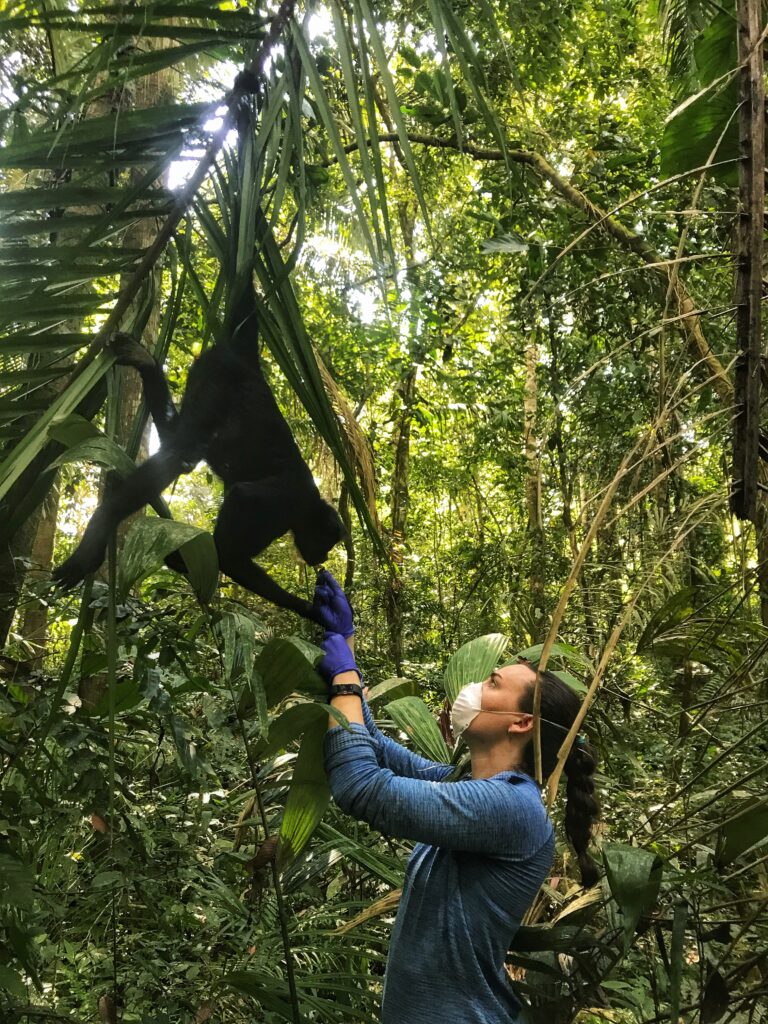
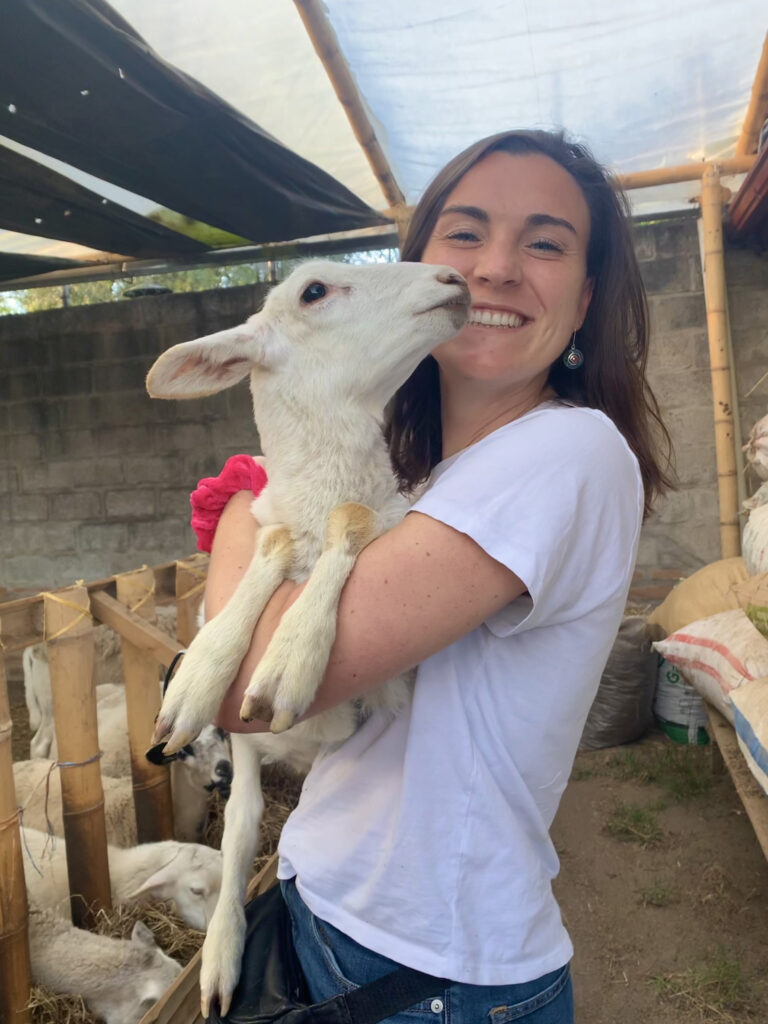
Mitman’s first research opportunity abroad arrived the summer after her first year. She spent three months with a team of researchers in Peru working with primates recovered from trafficking situations. Her project surveyed how several centers complied with the International Union for the Conservation of Nature’s rehabilitation guidelines, and she also participated in the primate infectious disease screening process.
A mentor from that project connected her with the National Institutes of Health’s Fogarty Global Health Fellowship. Mitman took a year off from veterinary school to study risk factors for antimicrobial resistance at small-scale farms in the region surrounding Quito, Ecuador, where she fell in love with working in livestock and farming communities.
“I was really drawn to the kind of roles livestock play on so many different levels in humans’ lives,” Mitman says. “They represent a really important group of species when it comes to public health and infectious disease because oftentimes they’re exposed to many of the same things that we’re exposed to.”
Mitman wanted more specialized clinical training to work with the breadth of livestock species. After graduating with her DVM in 2022, she headed to the NC State College of Veterinary Medicine to begin a ruminant medicine internship.
A Passion for Animals and Their People
The NC State Large Animal Hospital serves everything from hobby farms to production facilities, and Mitman was drawn by its diverse caseload and reputation for excellent mentorship.
She calls her internship a crash course in clinical and interpersonal skills. Some of her fondest memories involve building relationships with owners while treating their herds through the hospital’s internal medicine and field service teams.
Perhaps unsurprisingly, the people are Mitman’s favorite part of NC State. She says countless veterinary technicians, house officers, DVM students, faculty and staff have supported her steadily through completing her internship, residency and an online Master of Public Health program through the University of Minnesota-Twin Cities.
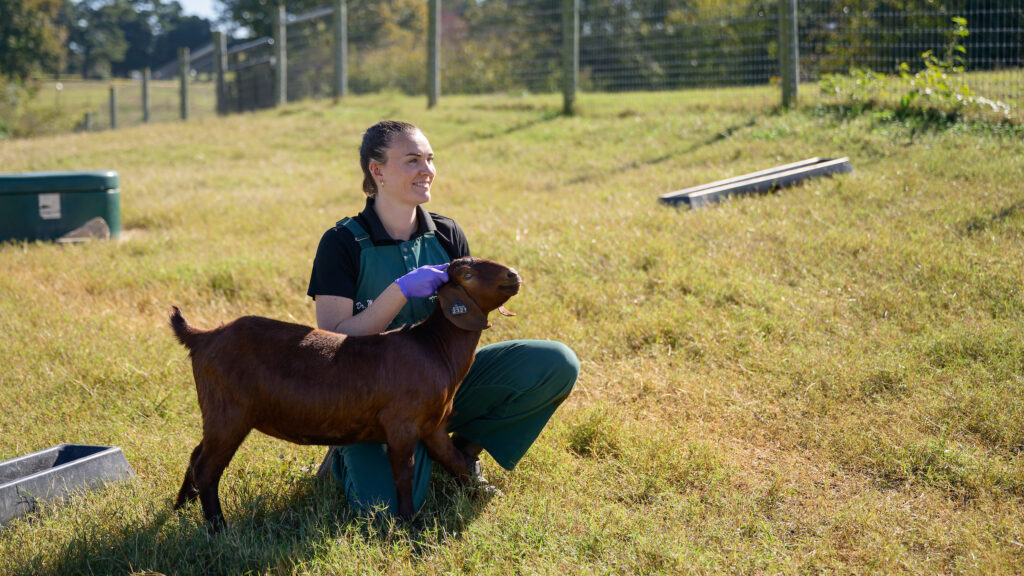
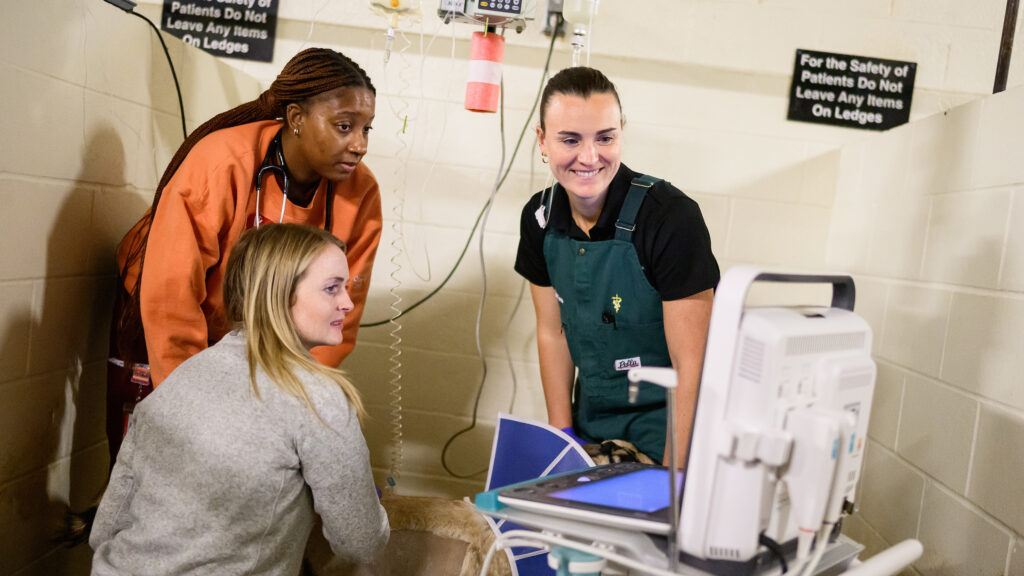
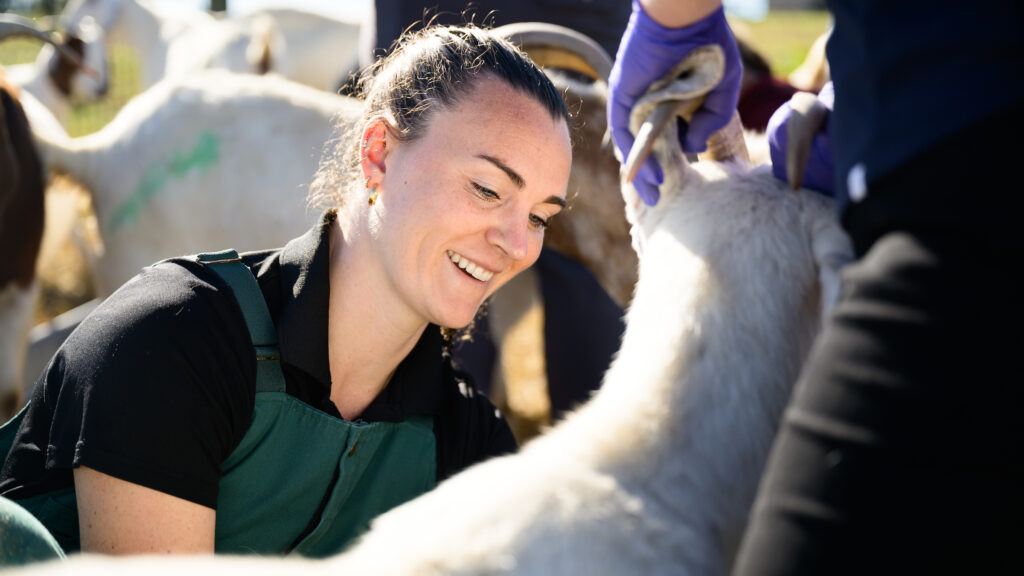
Dr. Derek Foster, associate professor of ruminant medicine, says the large animal team was ecstatic when Mitman chose to stay at NC State for her residency.
“She has an unparalleled work ethic, which keeps her a couple steps ahead of me when we are working together on clinics,” Foster says. “Yet her true passion lies in research. She completed a research project as an intern and is currently applying for funding for what will be the third research project of her residency. More than all this, Dr. Mitman is known as a mature, humble and compassionate colleague who makes our whole team better.”
Mitman has even continued to work abroad during her residency. She completed a three-week rotation at a ruminant clinic in Zurich, Switzerland, earlier this fall, treating the cattle that make up the famed Swiss dairy industry.
After completing her NC State residency, she says, she pictures herself pursuing a Ph.D. in veterinary public health and epidemiology, potentially at NC State, and working in academia in the long term. Last fall, Mitman was named an inaugural fellow of the College of Veterinary Medicine’s Veterinary Academic Leaders program, which prepares residents for careers in teaching and research.
“My experience so far has taught me that exploring the things that make you take a pause or feel excited is really worth it, especially when you’re in a stage where you’re still growing and learning,” Mitman says. “And finding ways to enjoy that process and appreciate the people working alongside you is everything.”
This article is part of a series featuring house officers across the NC State College of Veterinary Medicine and Veterinary Hospital. Click here to find previous House Officer Highlight stories.
- Categories:
